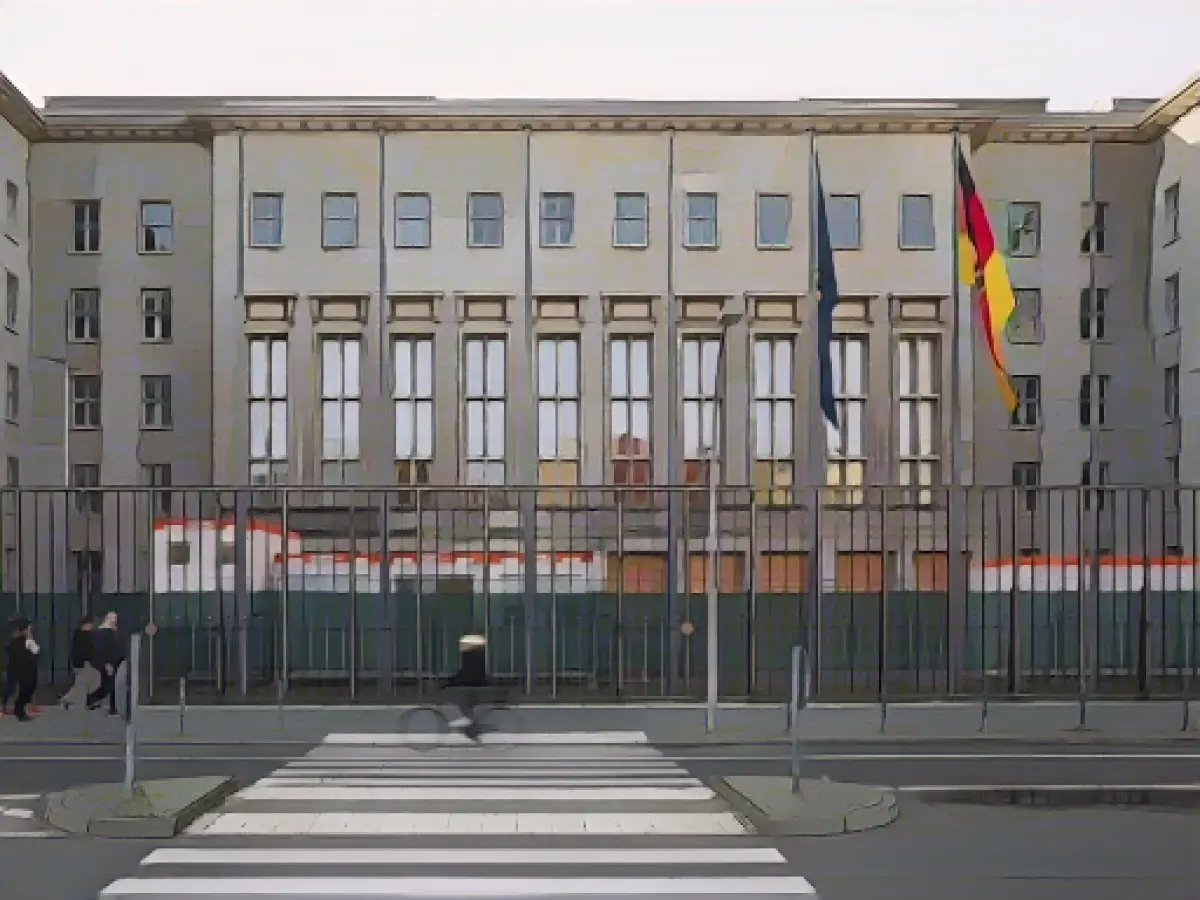Traffic light and CDU/CSU in favor of a quick end to the budget crisis
The traffic light coalition and the CDU/CSU want to quickly defuse the budget crisis caused by a constitutional court ruling. Federal Chancellor Olaf Scholz (SPD) expects the deliberations on the 2024 budget to be completed quickly, although the final meeting of the Budget Committee on the 2024 budget, which had been scheduled for Thursday, has been postponed. The CDU/CSU demanded a government statement from the Chancellor next week. The party also declared its willingness to hold a video conference of the parliament's Council of Elders this week "in view of the urgency" in order to discuss the next steps.
Last week, the Federal Constitutional Court declared the reallocation of 60 billion euros in the 2021 budget null and void. The money had been approved as a coronavirus loan, but was subsequently to be used for climate protection and modernizing the economy. At the same time, the judges ruled that the state may not reserve emergency loans for later years. As a result, further billions for future projects are at risk.
As the exact impact on the regular budget is still unclear, the Ministry of Finance decided to block certain commitments of all ministries for future years in the budget as a precautionary measure. On Wednesday, the so-called adjustment meeting of the Budget Committee, in which the final touches were to be made to the 2024 budget, was also canceled.
Scholz said on Wednesday evening after a meeting with the Italian head of government Giorgia Meloni: "Respect for parliament means that the government does not announce exactly when parliament will reach a conclusion, but this should be done very quickly and very promptly and it can be done quickly and promptly." Scholz emphasized that the traffic light coalition intends to stick to its plans in social, climate and economic policy. Specifically, he spoke of the further development of the welfare state, the modernization of the economy and ecological transformation. This is important for Germany's competitiveness and the protection of the climate.
SPD leader Lars Klingbeil warned against rushing into the adoption of the 2024 budget. "It's better to talk about it for a week or two longer and make the right decisions than to act too quickly now and then perhaps make mistakes later," Klingbeil said on ZDF's "heute journal" on Wednesday evening. Of course, he also wants the budget to be passed quickly. Helge Braun (CDU), Chairman of the Budget Committee, made similar comments on ARD's "Tagesthemen".
Union writes to Chancellery and Bundestag President
The CDU/CSU demanded a swift government statement from Scholz on the current budget crisis. "The budget and coalition crisis threatens to turn into a crisis of confidence in our state's ability to act," reads a letter from Thorsten Frei, Parliamentary Secretary of the CDU/CSU parliamentary group, to Wolfgang Schmidt (SPD), Head of the Chancellery, which was made available to the German Press Agency (dpa) in Berlin on Wednesday. "To avert this, we finally need clarity and truth from the Federal Government." After the next Bundestag session was convened for November 28, the CDU/CSU parliamentary group suggested using this date to issue a government statement, Frei wrote.
In another letter to Bundestag President Bärbel Bas (SPD), which was also made available to dpa, Frei calls for a prompt meeting of the parliament's Council of Elders to discuss the next steps in good time before the next sitting week, which begins on Monday. The CDU/CSU parliamentary group is prepared "in view of the urgency" to hold the meeting by video conference later this week. With the cancellation of the budget committee's clean-up meeting this Thursday, the budget discussions actually planned for next week are "effectively ruled out" and the course of the meeting week is unclear.
Warning against shredding the welfare state
Trade unions and social welfare associations urgently warned against cuts in the social sector due to the current budget crisis. "Anyone who believes they can score political points by playing off social policy against investment in the future will wake up in a country full of climate deniers and market radicals," said DGB Chairwoman Yasmin Fahimi to Redaktionsnetzwerk Deutschland (RND/Thursday). Ulrich Schneider, Managing Director of the Paritätischer Gesamtverband, also warned RND: "We can now only hope that planning security is created as quickly as possible and that the welfare state is not shredded."
The Chief Executive of the German Association of Towns and Municipalities, Gerd Landsberg, on the other hand, called for investments to take precedence over further social benefits in the "Neue Osnabrücker Zeitung" (Thursday).
Effects on the Deutschlandticket and KfW funding programs
The budget ruling also has an impact on the funding programs of the state development bank KfW. On Wednesday, KfW imposed a temporary freeze on applications and commitments for four programs in the area of housing and construction. Promotional loans and investment grants already committed under these programs are not affected. Specifically, these are the "Age-Appropriate Conversion" program, the "Energy-efficient Urban Redevelopment" municipal funding program, the promotion of cooperative housing and the BMWSB hardship program for housing companies as a result of increased energy costs.
CDU transport expert Thomas Bareiß also expects that the price of the Germany ticket could rise significantly. "In view of the ruling from Karlsruhe, it is clear that the 49-euro ticket will now become a 69-, 79- or even 89-euro ticket by June next year at the latest," the member of the Bundestag told the Rheinische Post newspaper (Thursday).
The CDU/CSU is advocating for a prompt government statement from the Federal Government regarding the budget crisis, as they believe it could lead to a crisis of confidence in the state's ability to act. In the context of the Household Finances and the Bundestag's budget deliberations, the CDU/CSU is concerned about the potential impact of the budget crisis on the welfare state and other Social Policy initiatives.
Source: www.dpa.com







